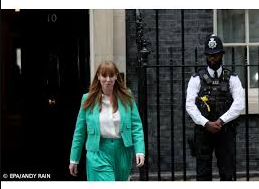
Local authorities call for immediate financial support to stabilise housing budgets and continue investment in new homes.
An unprecedented coalition of 100 local councils is urging the government to provide an emergency £644 million injection into their housing accounts to prevent delays or cancellations of vital investment in new homes. The councils have warned that the current financial model for council housing is “broken” and faces a £2.2 billion deficit by 2028 unless immediate action is taken.
The call follows Deputy Prime Minister Angela Rayner’s pledge for a “council housing revolution,” but local authorities have pointed out that the financial foundations of council housing are on the verge of collapse. They claim that the previous government failed to honour a 2012 agreement that would have stabilised rental incomes and ensured predictable costs for councils.
Local authorities argue that changes to government policy over the past decade have imposed additional costs on them while restricting essential income. The Housing Revenue Account (HRA), which finances housing maintenance and management, is in a “perilous state,” the councils warned, and cannot be fixed by rent increases alone.
A report commissioned by Southwark Council and backed by the 100 councils reveals that unless the financial system is stabilised soon, most councils will be unable to maintain their current homes, let alone build new ones for social rent. The report suggests that without intervention, councils may have to sell off more properties to fund housing investment.
The authorities are calling for an emergency capital funding injection of £644 million to address the income loss caused by the 2023-25 rent cap, which would help stabilise their HRAs in the short term and prevent further disruption to housing projects. They also demand a new sustainable HRA model, including long-term rent agreements and reforms to the “unsustainable” right-to-buy policies that have led to a reduction in council housing stock.
Kieron Williams, Labour leader of Southwark Council, said: “This unprecedented coalition is united in our determination to ensure our residents have decent, affordable homes. Our proposals offer the government a chance to turn things around by modernising and expanding council housing, ensuring that families have the security and stability they need to thrive.”
The report also calls for urgent reforms to the housing system, including the removal of bureaucratic obstacles to funding, the creation of a long-term “green and decent homes programme,” and action to restart stalled building projects to avoid further downturns in the construction sector.
In response, the Ministry of Housing, Communities and Local Government stated: “We recognise the severity of the housing crisis and are working quickly to reverse the decline in social rent homes. We have already provided councils with more flexibility regarding Right to Buy receipts and allocated additional funding to support families at risk of homelessness. Further details on this will be outlined in the next spending review.”










